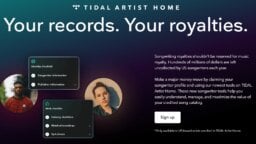On February 5, 1919, Hollywood’s fast-evolving ‘studio system’ was dealt a black eye.
These were innocent days. California’s nuclear families were becoming transfixed by silent slapstick, as excited whispers spread about the advent of the ‘talkies’.
Moguls keen to wrap their iron grip around Tinseltown couldn’t have asked for more perfect conditions.
Their ‘studio system’ plot contained three key elements. First, actors were chained to exclusive long-term contracts, churning out picture after picture on cost-effective lots.
Second, distribution syndicates were controlled to ensure the major studios’ freshly-cut movies got priority. Finally, vast chains of theatres were bought up, guaranteeing which movies would be pushed to the masses.
Content, delivery and presentation, all under one roof. It’s a wrap.
“Aged just 29, charlie chaplin heroically duck-walked out of hollywood’s studio system.”
Charlie Chaplin didn’t like these suffocating parameters one bit. So, aged just 29 and already a superstar of the screen, he heroically duck-walked his way to freedom.
United Artists was established by Chaplin and three other movie creators – DW Griffith, Mary Pickford and Douglas Fairbanks – as a two-finger salute to Tinseltown’s slave-drivers.
It was a studio steeped in the belief that if creators could truly own their art, the audience would be mesmerised by the result.
There was to be no Hollywood ending: Chaplin and his conspirators’ idyllic vision turned out to be something of a crock.
Without the financial backing of the big players and plagued by the increasingly technical demands of cinema, UA’s cash flow became a crippling burden. Eventually, its founders splintered and the enterprise had to be bailed out with external money.
History shows, however, that United Artists burnt an indelible mark on those original movie moguls. In fact, it spooked the hell out of them.
On being told of Chaplin’s plans, Richard A. Rowland, head of Metro Pictures, birthed a version of a legendary line – one which would echo in Hollywood for eons:
“The lunatics have taken over the asylum.”
“When they did United Artist films, people were going to theatres saying: ‘Now we’re going to see what the artists wanted; what Chaplin wanted. The artists are in control.’ That’s what Tidal has to be.’”
On this evidence, Jack White wouldn’t have made much of a Hollywood mogul.
His description of Jay Z’s swanky Tidal relaunch on Monday muddles two pillars of industrialised entertainment: ownership of the product, and its delivery to punters.
Guess where the power really lies?
A carrier like Spotify – which takes just 20% of post-tax revenues generated by its service and shoulders all the risk? Or with a major rights-holder, which is paid 50% of post-tax streaming cash and demands big upfront cash advances for its trouble?
Jack White must know, deep down.
That’s why, like Charlie Chaplin, he created his own ‘studio’, Third Man Records. And why, unlike Charlie Chaplin, he accepted a major’s money – Sony‘s Columbia – to de-risk his own releases.
Tidal’s public launch was, unfortunately, mighty awkward; what should have been a captivating orgy of restless ego was stifled by the airless normalcy of signing a sheet of paper as Radiohead’s National Anthem parps on and on.
It was also a bit sickening: 16 people with a combined wealth of $1bn+ pledging to “re-establish the value of music”? Urgh.
“If reports are accurate, we watched 15 rich people each pocket assets worth $6m in a manner befitting noble medics headed into an ebola zone.”
Music’s existing value can’t be hurting Rihanna and Kanye West too savagely: their FourFiveSeconds is the most-played track in the world on Spotify today. Its 16m weekly streams will be paying out around $450k a month.
Tidal’s market value has reportedly now topped $200m, and Jay Z has gifted each of his celeb endorsers 3% equity in the business.
If that’s accurate, we just watched 15 rich people each pocket assets worth $6m in a manner befitting noble medics heading into an Ebola zone.
A less crusading Tidal launch, one fully focused on the benefits of true HD audio – selling it not only as ‘music as the artist intended’ but an aspirational membership club – might have made for a less cloying alternative.
The biggest problem in the music industry today – yesterday, any day – is not the ability of a few superstar artists to make a lot of money. It is the inability of a lot of non-superstar artists to make much money at all.
In the only biting comment on Monday night amongst a storm of ‘revolutionary’ flannel, one of Daft Punk – whose own worth is in the region of $120m – said: “Tech companies think the artists are products. We are not. [With Tidal] we can become The Avengers of music!”
Invigorating stuff.
Avenging against what, though, exactly? The very system that made you so minted?
Pop your helmet off, mate. You’re overheating.
So, Jay Z and his flush friends made a PR mistake playing the poor-me card.
Brassic artists will feel scarce empathy for stars wearing shoes worth more than their annual digital royalties. Especially when equity holders in Tidal actually stand to profit from their struggle.
Nice try, Alicia, but a dab of Nietzsche can’t hide the fact that these are not the most robust conditions from which to bemoan fiscal injustice.
Yet the intention of Jay Z’s woolly Avengers manifesto – the intention of Tidal, ostensibly – should still be loudly applauded.
“The intention of jay z’s woolly Avengers manifesto should still be loudly applauded.”
Artists wresting back control of their destiny. The (vague) promise of under-served talent getting exposure in the echo chamber of mainstream fandom. Creators giving audiences the quality they deserve.
Of this, Charlie Chaplin would surely have approved.
(Having been burnt once, he might also have some sage financial advice for the usually-savvy Shawn Carter. When asked how Tidal would pay artists more than current streaming services, Jay Z told Billboard he’s committed to doing so “even if it means less profit for our bottom line”. In 2014, Tidal’s parent posted a net loss of €9m.)
For the revolutionary-minded, it is a shame that Tidal’s array of glamorous business partners have, so far, failed to extend their curious mix of benevolence and entrepreneurship beyond a consumer-facing platform.
There is, to-date, no talk of them launching their very own Hollywood-style ‘studio system’ for young artists. If they were willing – and it would mean dipping deep into their leather trouser fund – it could really shake up the music business.
An artist-owned content creation company tied to a controlled HD digital delivery platform: that would be a real white knight for underpaid talent; a meaningful commitment from the generation that prospered in the old world to those wailing from the other side of the vertical drawbridge.
With the right partners, we’ll sign you, support you, distribute you – and pay you properly.
No wonder Lucian Grainge is impressed by Tidal. Currently, for all of its ‘game-changing’ drivel, it offers no threat to his bottom line: promises of a few exclusives aside, it plays nicely into Universal and the other major labels’ agenda.
Tidal is a useful stick with which to beat Spotify’s free tier. It’s further ‘evidence’ to decry ad-supported users as insignificant or harmful – rather than a bedrock on which to build a monetised audience of billions.
Meanwhile, the majors retain control of at least some of the rights (and those contentious streaming royalties) of all 16 artists who proudly strolled onto Monday’s stage.
“Imagine an artist-run content creation company with its own digital delivery platform. That’s revolution.”
Even Jay Z’s Roc Nation, the independent business that brought the world Rihanna, is in thrall to Universal for its commercial horsepower.
For myriad reasons, slipping under the duvet with a major is a sensible choice for these megastars: it provides security, infrastructure and a virile sales force in an unstable global market.
But it means that Jay Z’s ‘Avengers’ are only free to vanquish the one party in the foodchain who gains the least from their popularity: the low-margin distributor.
And not, under any circumstances, to challenge the dominance of the companies swallowing the lion’s share of streaming revenues.
Ninety-six years on from the dawn of United Artists, the lunatics are still every bit as keen to free themselves of their shackles.
They just appear to have forgotten where the asylum is actually located.Music Business Worldwide




